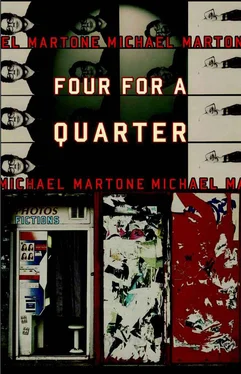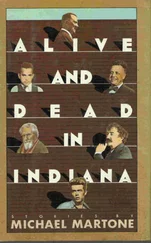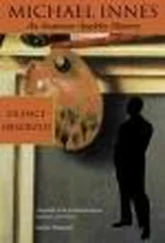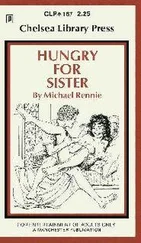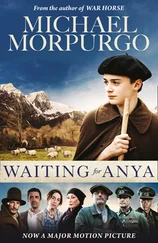“On the third day of trials someone is on the bubble,“ he said. “That's why I like the third day, because of the bubble. That means, usually, the whole field is filled up and the bumping starts. The slowest qualifying time from the first weekend is on the bubble. If someone goes faster, his bubble bursts. He gets bumped out of place just like that. You want a beer?“
It was barely light by the time we reached Indianapolis. We took the sweeping banked curve with the John Deere dealership nestled behind it. The green and yellow tractors became visible. The ground around showed black, recently disked — a demonstration. The one banked curve on the straight highway anticipated the city.
“A two-stroke engine has a baffle. Have you ever heard an unmuffled engine?“ my father asked. “Really?“
I had lived in Indianapolis for a while. In those moments when the whole city became quiet in the late afternoon, when the various oscillations of noise matched their pulses of hills and valleys, in the small depressions of silence I could hear the yawn of an engine coming from the track and the tatter of a loudspeaker voice drifting after it. That would be the tire tests. Spring.
“I taught you your left and right in a car. The left hand was where the steering wheel was. The oncoming traffic messed you up again. All the daddys were on the wrong side. Fooled you.“
The motor home eased on to an exit ramp, kept left and looped over the top of the highway. It then descended upon and merged with 465, belted around the whole city. Going east. The wrong way. The long way. The track was on the west side of town. This was done every year, too, a trip taken every year all the way around the city. A parade lap. The motor home wallowed back and forth between the four lanes, jockeying for no reason, responding slowly as things came up. The Erhmans lapsed into a spiel on slurry and expansion coefficients. We swayed by the first Steak 'n Shake drive-in, black and white, a shadow in the bell of a trumpet exchange. The striped awnings of the restaurant were already down in the new light, and a boy in white was on a ladder changing lightbulbs in the sign that read dimly, In Sight It Must Be Right.
“When you were little I took you to every one of Don Hall's drive-ins,“ my father whispered. “Each time he had a son, Don Hall put up another drive-in. He gave them all names. His sons and his restaurants. Both the same names. Trying to get both of them right. The Hollywood next to the Roller Dome. The Stockyard. The Old Gas House. The Factory. The Prime Rib. Imagine, Prime Rib Hall. The Lantern. You had one of those car seats with the little plastic wheel. It had a little mousey horn. The parking lots were flocked with pigeons pecking crumbs.“
We panned around the sun and slingshot to the south, snapped north again. The sun was on the other side of the motor home. When I lived here, I walked in Crown Hill Cemetery, the third largest cemetery in the country. John Dillinger is buried there. Most of the land is still unused, bounded by the old canal on one side and brick walls that disappear on the other extremes. James Whitcomb Riley has his tomb on a hill, the highest point in Marion County. From there I could see most of the cemetery, the plots and tokens. At times I could catch sight of the few deer that had been walled-in long ago and continued to reproduce, living in the wooded areas. A few other people would trudge up the hill, some stopping occasionally to read the legends on the stone, pulling on the sleeve of a companion and pointing. The ends of the cemetery blended into the neighboring houses. Deep in the city someone tended the flame on the War Memorial. In a plaza, the flagpoles that raised and lowered state flags automatically using an electric eye did so every time the light changed. When a cloud closed off the sun. Clouds streamed from the east over vaults and tombs and pillars, giving the impression that the day was being manufactured just over the horizon and distributed above the city and, then, dismantled behind my back. Behind my back, I could hear the engines.
“Do you want something to eat?“ my father asked. Memory interrupting memory. “Once you get inside, it will cost you an arm and a leg.“
COMPRESSION
Seen through the binoculars, the sunlight streamed up from the grill and bumpers, strapping itself across the hood like wet paper. The guardrail blurred. Unmagnified, the car drifted into the banked curve, leaking light, a bearing in a roulette wheel. Trimming itself as the curve unwound, the car wedged into the shallow pool, splayed out wings of water, emerged, hit the brakes, slid until the drums dried out, then locked and skidded parenthetically 180 degrees, shifted into reverse, y-ed around, took off again through the pylons and stuttered over the railroad ties, geared down, ground and took the hill. Father and I watched International Harvester test a new model Scout. We alternated, passing the binoculars back and forth while eating French fries from a cardboard box. From where we sat among the wild carrots, we could see most of the track, the factory, and the lots packed with Transtars and army-green two-and-a-halves.
“That's right out of your future,“ my father said, handing me the glasses, “by at least two model years.“ I watched the old guard stumble up the hill toward us, one hand on his gun and the other pulling against the long grass for balance. He had come back to chase us away again.

My father was limping. Half-circled around him the freshman team he coached looked on. Central Catholic had been his high school, too. The practice field was behind St. Vincent's Children's Home. I watched him limp. I sat up on the shoulder of a giant statue of Mary that capped an outside altar. Beyond the field and the cinder track, the old New York Central tracks wound into Levin and Sons Junk Yard. In the yard, bodies and frames of wrecked cars fit inside one another. Flattened. The usual fires burned. The trucks moved in and out of the yard, over the scales by the gate. Coming in full. Going out empty.
“Hey, kid,“ someone yelled from below, “come on down here.“ He was with a group of orphans from the home. They were about my age. I climbed down. They wanted me to do them a favor. I was to go beg for a football from the team's manager. The orphans already had two or three helmets, kicking tees, and whistles. “Tell them you're an orphan,“ one of them insisted. “If you do that they'll give you anything you want.“ Chin straps dangled from their belts like scalps. “Yeah. Yeah.“ The rest now agreed and smiled, showing me the white gummy mouth guards, preformed, over their front teeth. “Yeah. Yeah,“ swallowing their words.

After the heats and the feature, workmen start taking apart the indoor oval, shoveling the dirt off the raked planks in the curves, and pitching the hay bales on the wagons. The scoreboard, hanging over the collapsing track, winks out and gathers into a solid black cloud suspended in the haze of dust and exhaust. I hold my scarf up to my mouth, filtering my breath through the wool scented with unburned gasoline. In my head, I conjugate the winners with the races as I trot beside my father through the corridor to the ramp, descend, detouring through the exhibition hall downstairs, makeshift pits, where the midgets are being loaded on the trailers. Some are being pushed up ramps; others are running up on their own power. The trailers are hooked up to pickups with their engines running, blending together in an anxious idle. Someone touches a butterfly and then lets go as we turn. He still wears a sooty balaclava and metallic fire suit. One-third the size of the old front-engine Offys, the midgets pack up like grips, a roll bar no bigger than a handle, the decals on the cowling like those old travel stamps on steamer trunks — Champion, Monroe, STP, Goodyear, Hurst, Fram, Borg-Warner, Bell. Chains ratchet through axles. Tailgates slam, and lights come on. A truck guns and stalls and starts again. They will drive all night tonight and race tomorrow in Kokomo. We head for the doors.
Читать дальше
